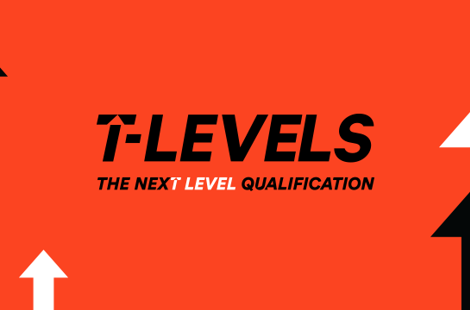_470x310.png)
Our Performing Arts students recently entertained local schools with their production of ‘The Adventures of Pinocchio’. Find out more here.
This occupation is found in healthcare under the profession of dentistry. Dental nurses work in a clinical environment that could be located in a NHS general dental practice, hospital, private dental practice, specialist dental practice, community dental service or military dental clinic. The clinical environment is called a dental surgery and consists of a dental chair, x-ray unit and various equipment and instruments required for dentistry. An apprentice will work with a dentist, dental hygienist, dental therapist, clinical dental technician or orthodontic therapist within a surgery environment with patients attending throughout the day.
The broad purpose of the occupation is to provide chair side support to all dental professionals and ensure high standards of cleanliness and infection control. Dental nurses prepare instruments, materials and medicaments for dental procedures, mix materials, sterilise instruments, keep records, note dictation, carry out stock control and ensure patient comfort and safety throughout their visit.
In their daily work, an employee in this occupation interacts with patients of all ages, other members of the dental team, other health professionals and representatives of organisations providing support services to the setting. Depending on the dental setting the dental nurse could also interact with schools, the prison service, community dental service, individuals in their own homes and those in care home settings.
An employee in this occupation will be responsible for providing care for people of all ages, different backgrounds, cultures and beliefs within a variety of clinical environments. Dental nurses must ensure that they only carry out a task, treatment or make decisions about a patient’s care if they are appropriately trained, competent, indemnified and have the necessary skills. Dental nurses are registered professionals and work within the standards and scope of practice as defined by the General Dental Council Scope of Practice document.
An apprenticeship is a real job where you learn, gain experience and get paid. By the end of an apprenticeship, you'll have the right skills and knowledge needed for your chosen career.
As an apprentice you will:
There are different rates of pay for apprentices depending on your age and what year of your apprenticeship you’re in.
Your employment contract should confirm your rate of pay.
Please visit https://www.gov.uk/become-apprentice/pay-and-conditions for the latest minimum apprenticeship wages.
The apprentice will attend college classes for a full day taking place every two weeks and will also receive one-to-one support in the workplace with a dedicated Learning and Skills Coach.
The apprentice will complete an End Point Assessment with the awarding body City and Guilds and will cover the three following areas:
The apprentice will also complete the Diploma in Dental Nursing of which they will be assessed throughout, methods include:
Relevant qualifications and/or initial assessment testing on maths and English will take place prior to commencement. Specific entry requirements may be applicable based on employer requirements.
If a successful placement is allocated the apprentice will be required to complete an up-to-date DBS check as well as consent to vaccinations in Hepatitis B including a blood test.
Positive Futures is a set of essential qualities, embedded throughout your study programme, that we seek to develop in all students:
You will also engage in the Positive Futures Careers Programme, developing key employability skills through a diverse range of activities including work placements, volunteering, employer talks, industry study visits and employment and university fairs.
As a Bury College student you will have access to a wide range of enrichment opportunities which will contribute to your personal growth and development and support your academic studies.
These may include:
Please Note: We attempt to ensure that all information contained within this website is correct and up-to-date. However, some details may change as we review and update our provision. Although every effort is made to provide the teaching, examination, assessment and other services detailed on this website and in our other publications, Bury College cannot guarantee the provision of such programmes, services, facilities and fees. Bury College reserves the right to amend, withdraw, alter or amalgamate any of the courses, locations and facilities detailed within at any time. Should circumstances require such amendments, Bury College undertakes to use all reasonable steps to minimise the resultant disruption to those services and most importantly to students.

_470x310.png)
Our Performing Arts students recently entertained local schools with their production of ‘The Adventures of Pinocchio’. Find out more here.

Find out how Bury College are championing T Levels. Read how T Levels and Bury College can help you on your journey to a positive future. See how many students currently study T Levels, how many employers we work with, and more.
_470x310.png) a group of graduates holding their caps in the air
a group of graduates holding their caps in the air
The Bury College University Centre Class of 2024 recently celebrated their graduation. Joined by their friends, family, and tutors, our students marked this truly special occasion.
_470x310.png)
Find out how Darcey Davidson has put her T Level to good use, progressing into a fulfilling career as a Band 2 Healthcare Support Worker at Salford Royal NHS Foundation Trust.
_470x310.png)
We recently spoke with two of our T Level alumni. Find out how both Holly and Grace have used their T Levels to advance to university.
_470x310.png)
Hear how our T Level placements students are bringing new ideas and innovation to their placements. Read to find out what our T Level employers have to say about our students.